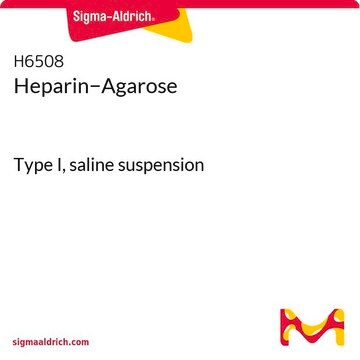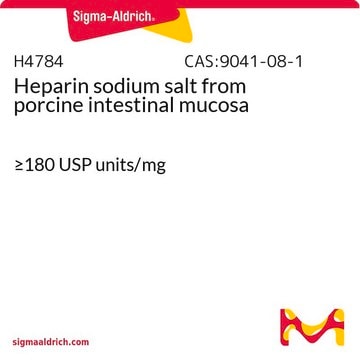H0402
Heparin−Agarose
(1:1 suspension in a 20% ethanol solution)
About This Item
Recommended Products
biological source
heparin from Porcine intestinal mucosa
form
(1:1 suspension in a 20% ethanol solution)
matrix
4% beaded agarose
matrix activation
epichlorohydrin
matrix attachment
terminal aldehyde by reductive amination to amine linker
matrix spacer
7 atoms
capacity
≥0.5 mg/mL binding capacity (thrombin)
storage temp.
2-8°C
Looking for similar products? Visit Product Comparison Guide
Application
Physical form
Preparation Note
Signal Word
Warning
Hazard Statements
Precautionary Statements
Hazard Classifications
Flam. Liq. 3
Storage Class Code
3 - Flammable liquids
WGK
WGK 3
Flash Point(F)
104.0 °F - closed cup
Flash Point(C)
40 °C - closed cup
Certificates of Analysis (COA)
Search for Certificates of Analysis (COA) by entering the products Lot/Batch Number. Lot and Batch Numbers can be found on a product’s label following the words ‘Lot’ or ‘Batch’.
Already Own This Product?
Find documentation for the products that you have recently purchased in the Document Library.
Customers Also Viewed
Our team of scientists has experience in all areas of research including Life Science, Material Science, Chemical Synthesis, Chromatography, Analytical and many others.
Contact Technical Service










